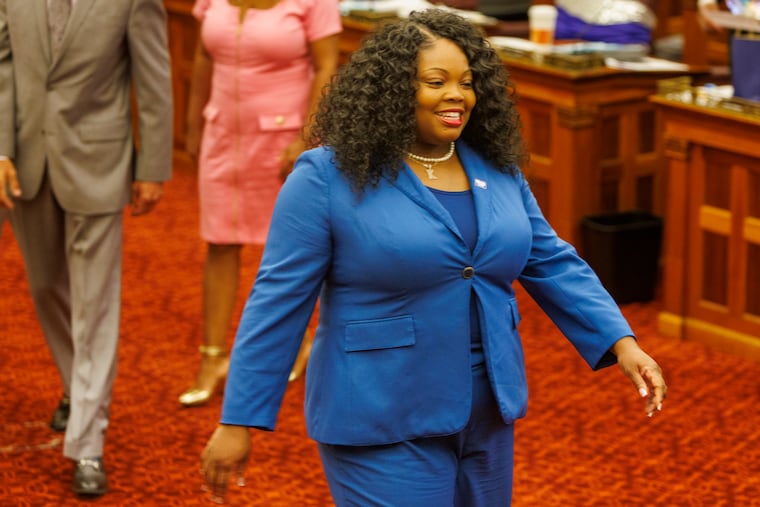Philadelphia law overhauling how it contracts with nonprofits to take effect, despite opposition from Mayor Parker
The legislation, championed by City Council Democratic Majority Leader Katherine Gilmore Richardson, requires nonprofits go through the same bidding process as other firms.

Philadelphia is overhauling how the city pays nonprofits for services like housing the homeless despite opposition from Mayor Cherelle L. Parker’s administration and the city’s philanthropic community.
Parker this week returned the legislation to Council without her signature, a move that is a step short of a veto and allows the bill to become law. It takes effect next July.
The mayor seemed to leave open the possibility that subsequent legislation could be implemented before then, writing in a letter to Council members that her administration is working with Council to “mitigate any unintended consequences.”
The bill, championed by City Council Democratic Majority Leader Katherine Gilmore Richardson, requires nonprofits go through the same bidding process as other firms. Currently, some are exempt from the typical procedures if they are contracting with certain health and emergency-related departments.
Gilmore Richardson authored the bill in response to fiscal mismanagement in the Office of Homeless Services, which used the exemption to contract with shelters and had less-than-typical involvement from other agencies. She framed her bill as a matter of good governance, saying nonprofits should be subject to the same rules and transparency as other firms that are paid by the city.
The bill passed through Council in the spring, 15-2.
Parker’s administration strongly opposed the measure, sending 11 department heads to offer testimony when it was under consideration this spring. They said the shift in how the city contracts would significantly burden city operations and make it harder for authorities to respond to emergencies.
The city’s nonprofit community was also fiercely against the legislation, saying it would negatively affect their bottom lines and could cause monthslong delays in the services they provide, such as housing the homeless or providing health care to low-income residents.
Her position was in some ways bolstered this week by a report issued by City Controller Christy Brady, whose office this year reviewed the use of the nonprofit exemption and examined dozens of contracts that stemmed from it. Brady’s office found that, of the largest American cities, none besides Philadelphia had an exemption for contracting with nonprofits.
The biggest problem her office found was that multiple departments have over the last several years illegally used the exemption. Under current city law, only a dozen departments are allowed to use the nonprofit exemption for contracting — most of them are health- or emergency-related.
But Brady said in her report that three departments not named in the law still spent more than $15 million on seven contracts by improperly using the exemption instead of going through a bidding process. The agencies were the Managing Director’s Office, the Office of the Chief Administrative Officer, and the Department of Aviation, which runs the airports.
The controller said the practice can lead to overspending for services because other providers didn’t have a chance to bid.
“The city might not have received the best costs for the services,” she said.